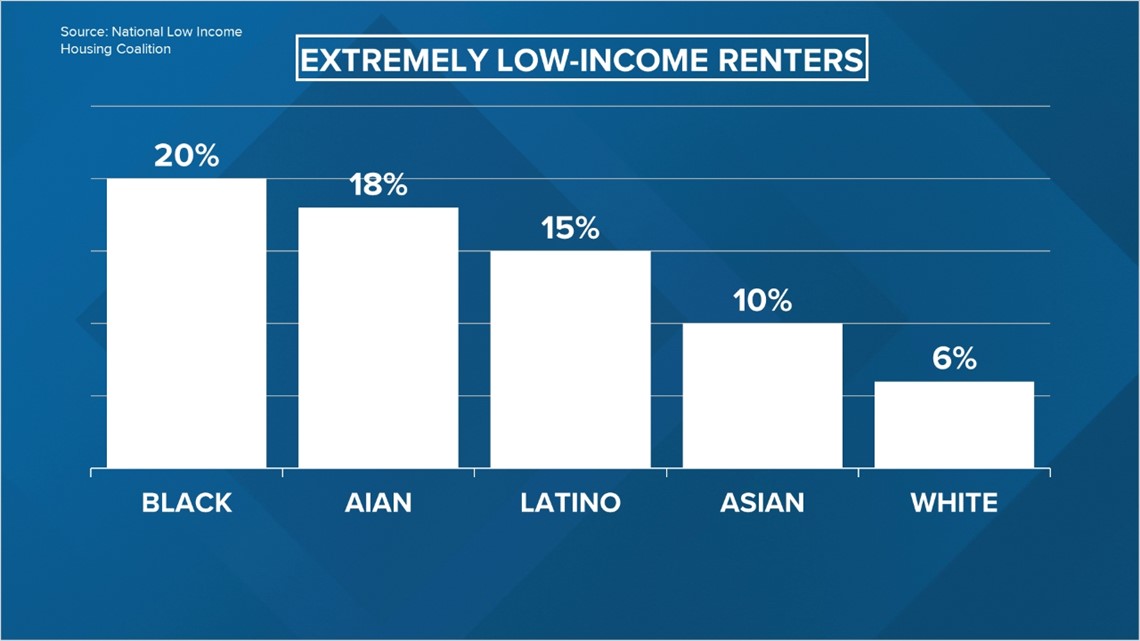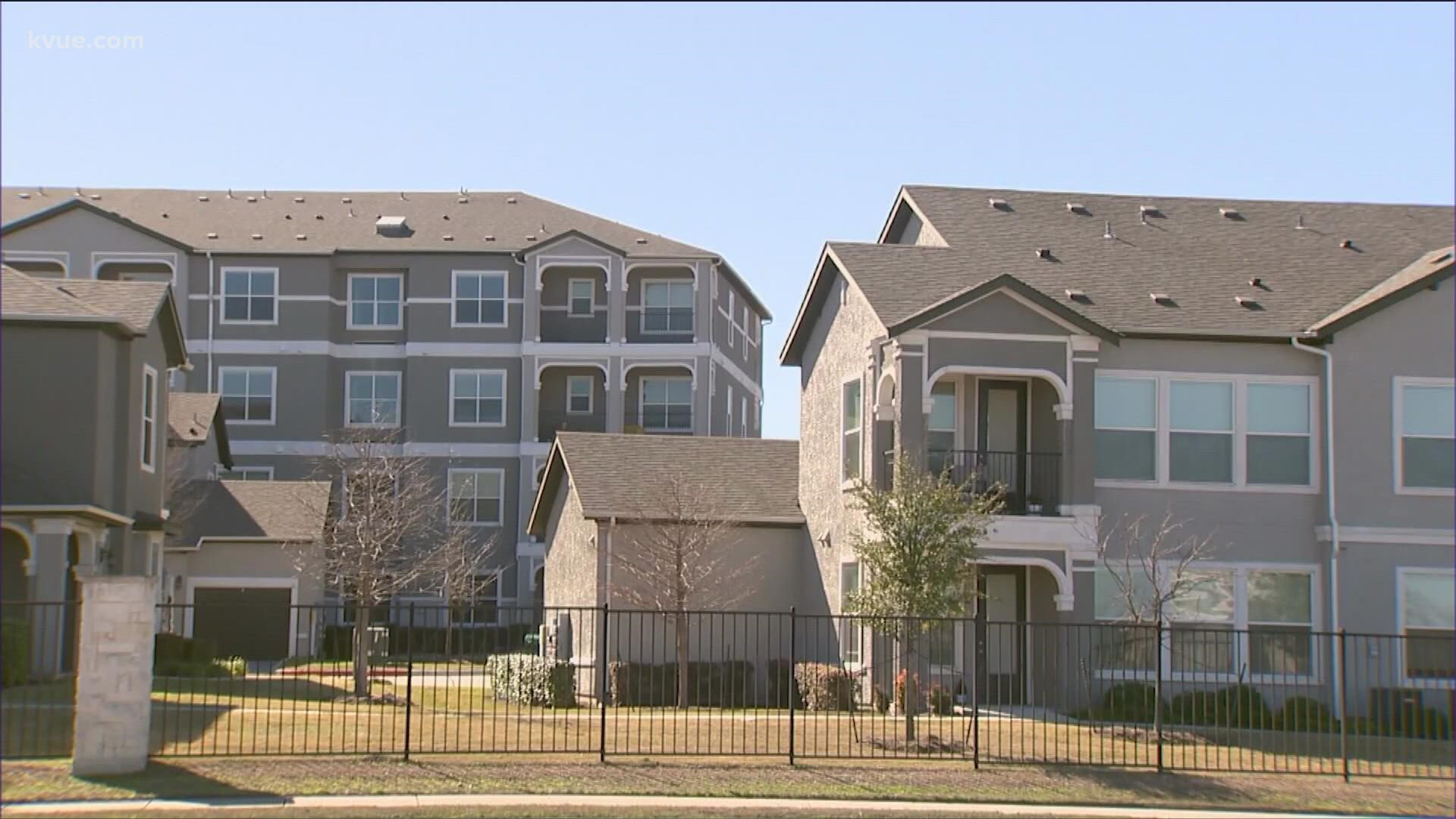AUSTIN, Texas — A national report released this month shows staggering numbers regarding affordable housing for low-income renters in the U.S., Texas and more. Specifically, Austin.
The report by the National Low-Income Coalition, based in Washington, D.C., says the U.S. lacks 7 million affordable and available rental homes. Bringing it closer to home, Texas only has 29 homes for every 100 low-income people in need of affordable housing.
In Austin, the city reportedly has 22 homes for every 100 low-income renters.
Austin nonprofit Building and Strengthening Tenant Action (BASTA) helps low-income renters find and stay in affordable housing. Mincho Jacob of BASTA said the number of people they help only continues to rise.
"Austin is a very unique place in that, once upon a time, it was very cheap to live here and a lot of people flocked to Austin, you know?" said Jacob.
Jacob echoed what the National Low Income Coalition says: at the forefront of the lack of affordable rental home issue are minorities.


"The pressures for those families are very high," said Jacob.
According to the report, 20% of Black households, 15% of Latino and 10% of Asian households are extremely low-income renters, compared to only 6% of White households. Two-thirds of these groups make less than $32,000. Jacob said many of the families BASTA helps once lived on the east side of Austin, but as that area became more valuable, families were forced out. He said many are also still trying to get back on their feet after losing their jobs during the pandemic.
"A lot of them work in industries where you have like, the service industry, construction industry," said Jacob.
He called the problem a domino effect from the days of segregation in Central Texas.
"1928 was when Austin was segregated along I-35," Jacob explained.
"We really need to take a step back and look at how to rectify these historic wrongs and, again, move forward in a way to give people the chance to build wealth and be a part of the community they want to be in," said Jacob. "A lot of people I've talked to have lived here for 100 years, 100 years plus their families, and they're getting displaced right now. So, what do we want for the future of our city? That's one of the things that we need to look at as we are moving forward and at different policies."
PEOPLE ARE ALSO READING:

